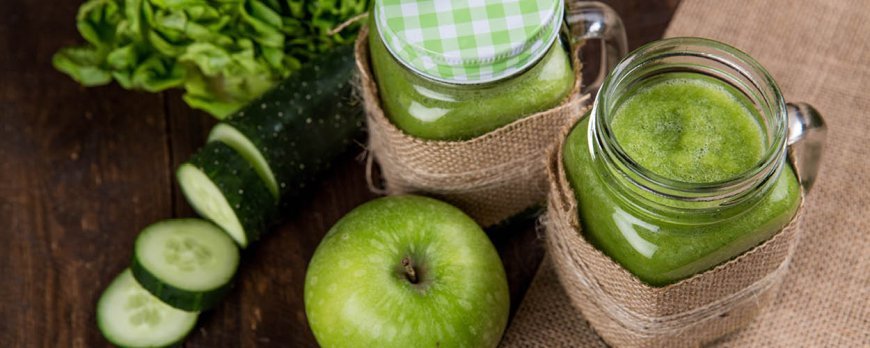What is the healthiest drink?
Explore 'What is the healthiest drink?' Unearth nutritious options from nature's bounty that provide extensive benefits for overall wellbeing.

What is the Healthiest Drink?
When it comes to choosing the healthiest drink for your body, it can be overwhelming with so many options available. However, by understanding the benefits and nutritional content of different beverages, you can make informed choices that support your overall well-being. From flavored sparkling water to green tea, smoothies to kefir, there are several options that provide hydration and various health benefits.
Key Takeaways:
- Flavored sparkling water is a refreshing and healthy choice, offering hydration without added sugars or artificial flavors.
- Kombucha is a gut-healthy elixir, rich in probiotics that support digestion, gut health, and immunity.
- Green tea is a powerful antioxidant brew, known for its high antioxidant content and potential positive impact on metabolism and cardiovascular health.
- Smoothies are a delicious and nutritious blend, packed with essential nutrients from fruits, vegetables, and other wholesome ingredients.
- Hibiscus tea is a refreshing and heart-healthy beverage, potentially benefiting cardiovascular health and overall well-being.
It's important to choose beverages that are low in sugar or sugar-free, free from artificial flavors, and made with natural ingredients. Water remains the best choice for overall hydration, as it is calorie-free and essential for optimal bodily functions. Remember to consume these drinks in moderation and consult a healthcare professional for specific dietary needs or conditions.

Flavored Sparkling Water: A Refreshing and Healthy Choice
Looking for a bubbly and refreshing drink that can still be considered healthy? Consider flavored sparkling water, which offers hydration and a burst of natural flavors without the drawbacks of added sugars or artificial ingredients. With the growing popularity of health-conscious beverages, flavored sparkling water has become a top choice for those seeking a delicious and guilt-free option.
One of the main advantages of flavored sparkling water is its ability to provide hydration without any extra calories. Unlike sugary sodas or fruit juices, this beverage is typically calorie-free, making it an excellent choice for individuals who are watching their calorie intake or trying to maintain a healthy weight. Additionally, it contains no added sugars or artificial sweeteners, which can be detrimental to overall health if consumed excessively.
Another benefit of flavored sparkling water is the wide variety of natural flavors available. Whether you prefer a hint of citrus, a burst of berry, or a refreshing cucumber taste, there are countless options to suit every preference. These natural flavors are derived from real fruits, ensuring a more authentic and enjoyable drinking experience.
In summary, flavored sparkling water is a fantastic alternative to sugary beverages, offering hydration and a refreshing taste without the harmful additives. By choosing this healthy drink option, you can enjoy the benefits of staying hydrated while exploring a variety of delicious flavors. Remember, moderation is key when incorporating any drink into your daily routine, and it's always wise to consult a healthcare professional for personalized advice on your dietary needs.
Kombucha: The Gut-Healthy Elixir
If you're looking to support your gut health while enjoying a tangy and effervescent drink, kombucha might be the perfect choice. This naturally fermented tea is packed with probiotics, which are beneficial bacteria that help maintain a healthy balance in your gut. The probiotics found in kombucha can support digestion, aid in nutrient absorption, and strengthen the immune system.
Kombucha is also a rich source of antioxidants, which help protect against cell damage caused by harmful molecules called free radicals. By regularly consuming kombucha, you can potentially reduce inflammation, improve your gut health, and support your overall well-being.
The Benefits of Kombucha:
- Probiotics for improved digestion and gut health
- Antioxidants to reduce inflammation and protect against cell damage
- Potential immune system support
- Natural effervescence for a refreshing and enjoyable drinking experience
When choosing kombucha, opt for varieties that are low in added sugars and artificial flavors. Look for brands that use organic ingredients and natural fermentation processes. Remember to consume kombucha in moderation, as excessive consumption may lead to digestive discomfort for some individuals.
While kombucha can be a delicious and beneficial addition to a healthy lifestyle, it's essential to consult a healthcare professional for any specific dietary needs or conditions. They can provide personalized guidance and ensure that kombucha is a suitable choice for you.
Green Tea: A Powerful Antioxidant Brew
Green tea has long been recognized for its impressive health benefits, thanks to its rich antioxidant content and its potential to support metabolic health and cardiovascular well-being. Packed with potent compounds called catechins, green tea offers a range of health-boosting properties that make it a top choice for those seeking nutritious beverages.

Here are some key reasons why green tea deserves a spot in your healthy drink lineup:
- Antioxidant power: The high levels of antioxidants in green tea, particularly a type called EGCG, help to neutralize free radicals in the body and protect against cellular damage. This can have a positive impact on various aspects of health, such as reducing the risk of chronic diseases like heart disease and certain types of cancer.
- Metabolic support: Green tea has been shown to potentially enhance metabolism and promote fat oxidation, making it a popular choice for those looking to manage their weight. The combination of caffeine and catechins in green tea may help to increase calorie burning and improve overall energy expenditure.
- Heart health benefits: Research suggests that regularly consuming green tea may help to lower LDL ("bad") cholesterol levels and reduce blood pressure, both of which are risk factors for heart disease. The presence of catechins in green tea is believed to contribute to these cardiovascular benefits.
When enjoying green tea, it's important to choose high-quality, organic options to ensure maximum nutritional benefits. While green tea can be a healthy addition to your daily routine, it's essential to consume it in moderation and consult a healthcare professional if you have any specific dietary concerns or health conditions. Remember, when it comes to overall hydration, water remains the best choice.
Smoothies: A Delicious and Nutritious Blend
Whether enjoyed as a meal replacement or a post-workout refresher, smoothies are a popular choice for those looking to combine multiple nutritious ingredients into one delicious drink. Packed with essential vitamins, minerals, fiber, and antioxidants, smoothies offer a convenient way to boost your daily nutrient intake and support a healthy lifestyle.
What makes smoothies so versatile is that you can customize them according to your taste preferences and specific health goals. Whether you prefer a refreshing fruit-based smoothie or a green smoothie packed with leafy greens, the options are endless. By incorporating nutrient-dense ingredients like fruits, vegetables, Greek yogurt, nut butter, or seeds, smoothies can provide a wide range of health benefits.
- Smoothies can help boost your immune system with their high vitamin C content from fruits like oranges, strawberries, and kiwi.
- They can aid digestion and promote gut health thanks to the fiber-rich fruits and vegetables included.
- Smoothies can support healthy blood sugar levels and provide sustained energy when balanced with protein, healthy fats, and carbohydrates.
- With their hydrating properties, smoothies can help you stay hydrated throughout the day, especially if you use a liquid base like coconut water or almond milk.
As with any beverage, moderation is key when consuming smoothies. While they can be a nutritious addition to your diet, it's important to be mindful of portion sizes and the overall calorie content, especially if you're trying to manage your weight. It's also recommended to consult a healthcare professional, as individual dietary needs may vary. Remember, water is still the best choice for overall hydration as it is calorie-free and essential for proper bodily functions. So, indulge in a delicious smoothie, but don't forget to stay well-hydrated with water throughout the day!
Hibiscus Tea: Refreshing and Heart-Healthy
If you're searching for a vibrant and flavorful beverage that also offers potential advantages for heart health, look no further than hibiscus tea. This refreshing drink is made from the petals of the hibiscus flower and has been enjoyed for centuries in different cultures around the world. Not only does it boast a delightful taste, but it also provides a range of potential health benefits.
Hibiscus tea is known for its high levels of antioxidants, which can help protect the body against oxidative stress and inflammation. These antioxidants, such as flavonoids and anthocyanins, have been linked to promoting cardiovascular health by improving blood pressure levels and reducing the risk of heart disease. Additionally, hibiscus tea may have a positive impact on cholesterol levels by lowering LDL (bad) cholesterol and triglycerides.
In addition to its heart-healthy properties, hibiscus tea is also a great choice for those looking to support their overall well-being. It is naturally caffeine-free, making it a suitable option for individuals who are sensitive to caffeine or prefer to limit their intake. The tea is also rich in vitamin C, which can boost the immune system and help defend against common illnesses.
To enjoy the benefits of hibiscus tea, simply steep the dried hibiscus petals in hot water for a few minutes until the vibrant red color infuses the liquid. You can also add a touch of honey or a squeeze of lemon to enhance the flavor. Whether enjoyed hot or poured over ice for a refreshing iced tea, hibiscus tea is a delicious and natural choice for a healthy beverage option that supports heart health and overall well-being.
Coconut Water: Naturally Hydrating and Nutrient-Rich
For a refreshing and tropical way to quench your thirst while replenishing essential electrolytes, coconut water is a fantastic choice. Packed with potassium, magnesium, and calcium, this natural beverage not only helps maintain proper hydration but also supports muscle function and promotes healthy blood pressure levels.
Coconut water is low in calories, making it a great alternative to sugary sports drinks. It contains natural sugars that provide a quick energy boost, making it an ideal choice for post-workout hydration. Additionally, its high electrolyte content can aid in rehydration after intense physical activity or exposure to hot weather.
Rich in antioxidants, coconut water also offers potential health benefits for the immune system and skin. It can help fight cell damage caused by free radicals, reducing the risk of chronic diseases. Its naturally hydrating properties and nutrient content make it a popular choice among those seeking a healthy and refreshing beverage option.

Why choose coconut water:
- It replenishes essential electrolytes
- Supports hydration and muscle function
- Offers a natural source of energy
- Contains antioxidants for immune support
- Hydrating and beneficial for skin health
Remember:
While coconut water can provide numerous health benefits, it's important to consume it in moderation as part of a balanced diet. Consult a healthcare professional for personalized recommendations, especially if you have any specific dietary needs or medical conditions. Additionally, always read labels to ensure you're choosing coconut water without added sugars or artificial flavors, maximizing the natural goodness of this tropical drink. Remember, water is still the best choice for overall hydration and is calorie-free.
Low-Fat and Fat-Free Milk: Nutritional Powerhouses
Milk has long been regarded as a nutritional powerhouse, offering a range of essential nutrients that support optimal health and well-being. Low-fat and fat-free milk, in particular, are excellent choices for those seeking a healthy and nutritious beverage option. Here are some key reasons why low-fat and fat-free milk should be included in a balanced diet:
- Calcium: Low-fat and fat-free milk are rich sources of calcium, a mineral essential for strong bones and teeth. Calcium also plays a crucial role in muscle function and nerve transmission.
- Protein: Milk is a complete protein source, providing all nine essential amino acids necessary for growth, repair, and maintenance of tissues. Protein is also important for supporting a healthy immune system.
- Vitamin D: Low-fat and fat-free milk are often fortified with vitamin D, a nutrient that aids in the absorption of calcium and promotes bone health. Vitamin D also plays a role in immune function and may have protective effects against certain chronic diseases.
In addition to these essential nutrients, low-fat and fat-free milk are relatively low in calories, making them a suitable choice for individuals looking to manage their weight. It's important to note that milk is a dairy product and may not be suitable for those with lactose intolerance or dairy allergies. In such cases, alternative sources of calcium and protein should be considered, such as fortified non-dairy milk options or other plant-based foods.
When choosing low-fat or fat-free milk, opt for varieties that are free from added sugars and artificial flavors. This ensures that you're getting the maximum nutritional benefits without any unnecessary additives. As part of a balanced diet, low-fat and fat-free milk can be enjoyed on its own or used in smoothies, cereal, or coffee.
Summary:
Low-fat and fat-free milk are nutritional powerhouses, providing essential nutrients like calcium, protein, and vitamin D. These nutrients support strong bones, muscle function, immune health, and overall well-being. It's important to select milk options that are free from added sugars and artificial flavors. However, individuals with lactose intolerance or dairy allergies should seek alternative sources of nutrients. Including low-fat or fat-free milk as part of a balanced diet can contribute to a healthy and nutritious lifestyle.
Kefir: Probiotic-rich and Digestive-Friendly
For those looking to enhance their digestive health and incorporate beneficial probiotics into their diet, kefir is an excellent choice. Made from fermented milk, kefir contains a diverse range of beneficial bacteria and yeast strains that can help support a healthy gut microbiome. These probiotics play a crucial role in promoting digestion and may even aid in alleviating digestive issues such as bloating and constipation.
One of the advantages of kefir is its rich nutritional profile. It is a good source of protein, calcium, vitamin D, and other essential vitamins and minerals. This makes kefir not only beneficial for gut health but also for overall nutrition. It is a great addition to a healthy and balanced diet, providing a convenient way to increase your intake of important nutrients.
There are also various options available for those looking to incorporate kefir into their diet. Whether you prefer the traditional dairy-based kefir or opt for non-dairy alternatives like coconut milk or almond milk kefir, you can easily find a version that suits your dietary preferences. Additionally, kefir can be enjoyed on its own, as a smoothie base, or mixed with fruits and other ingredients to create a delicious and nutrient-packed beverage.
When choosing kefir, it's important to opt for options that are low in added sugars and artificial additives. Some flavored kefir products may contain added sugars to enhance the taste, so it's always a good idea to check the nutrition labels and choose those with minimal or no added sugars. Additionally, if you have any specific dietary needs or concerns, it's advisable to consult a healthcare professional for personalized guidance.
Conclusion
When it comes to making healthy beverage choices, the options are abundant, but it's crucial to prioritize drinks that offer nutritional benefits and are free from excessive added sugars and artificial flavors. The healthiest drink options include flavored sparkling water, kombucha, green tea, smoothies, hibiscus tea, coconut water, low-fat and fat-free milk, and kefir. These beverages not only provide hydration but also offer various health benefits.

For those looking to support digestion and gut health, kombucha and kefir, both rich in probiotics, are excellent choices. Green tea, known for its high antioxidant content, may contribute to metabolic health and cardiovascular well-being. Smoothies, made with nutritious ingredients like fruits and vegetables, serve as a delicious and customizable option.
Furthermore, hibiscus tea and coconut water offer refreshing flavors and potential benefits for heart health and hydration, respectively. Low-fat and fat-free milk provides essential nutrients like calcium, protein, and vitamin D, promoting overall bone health and nutrition. It's important to choose options that are low in sugar or sugar-free, free from artificial flavors and excessive added sugars, and made with natural ingredients.
Although these beverages provide various health benefits, it's crucial to consume them in moderation and tailor dietary choices to personal needs. Consulting healthcare professionals can offer personalized dietary guidance and ensure that individual requirements are met. Ultimately, while exploring the wide range of healthy drink options, it's important to remember that water remains the ultimate go-to for hydration, as it is calorie-free and essential for overall well-being.
FAQ
What is the healthiest drink?
The healthiest drink options include flavored sparkling water, kombucha, green tea, smoothies, hibiscus tea, coconut water, low-fat and fat-free milk, and kefir.
What are the benefits of flavored sparkling water?
Flavored sparkling water is a refreshing and healthy choice that provides hydration without added sugars or artificial flavors.
Why is kombucha considered a gut-healthy elixir?
Kombucha is rich in probiotics, which can support gut health, digestion, and immunity.
What are the potential health benefits of green tea?
Green tea is a powerful antioxidant brew that may promote metabolism, cardiovascular health, and overall well-being.
Why are smoothies considered delicious and nutritious?
Smoothies can be customized with fruits, vegetables, and other wholesome ingredients, making them a delicious and nutritious option packed with essential nutrients.
How does hibiscus tea benefit the heart and overall health?
Hibiscus tea is refreshing and heart-healthy, potentially supporting cardiovascular health and overall well-being.
What makes coconut water a naturally hydrating and nutrient-rich choice?
Coconut water is rich in electrolytes, providing natural hydration and potential benefits for overall health and fitness.
What are the nutritional benefits of low-fat and fat-free milk?
Low-fat and fat-free milk is a nutritional powerhouse, offering essential nutrients like calcium, protein, and vitamin D, which can support bone health and overall nutrition.
What are the potential digestive benefits of kefir?
Kefir is a probiotic-rich beverage that can support gut health and digestion, making it a nutritious choice for overall well-being.





























































































































